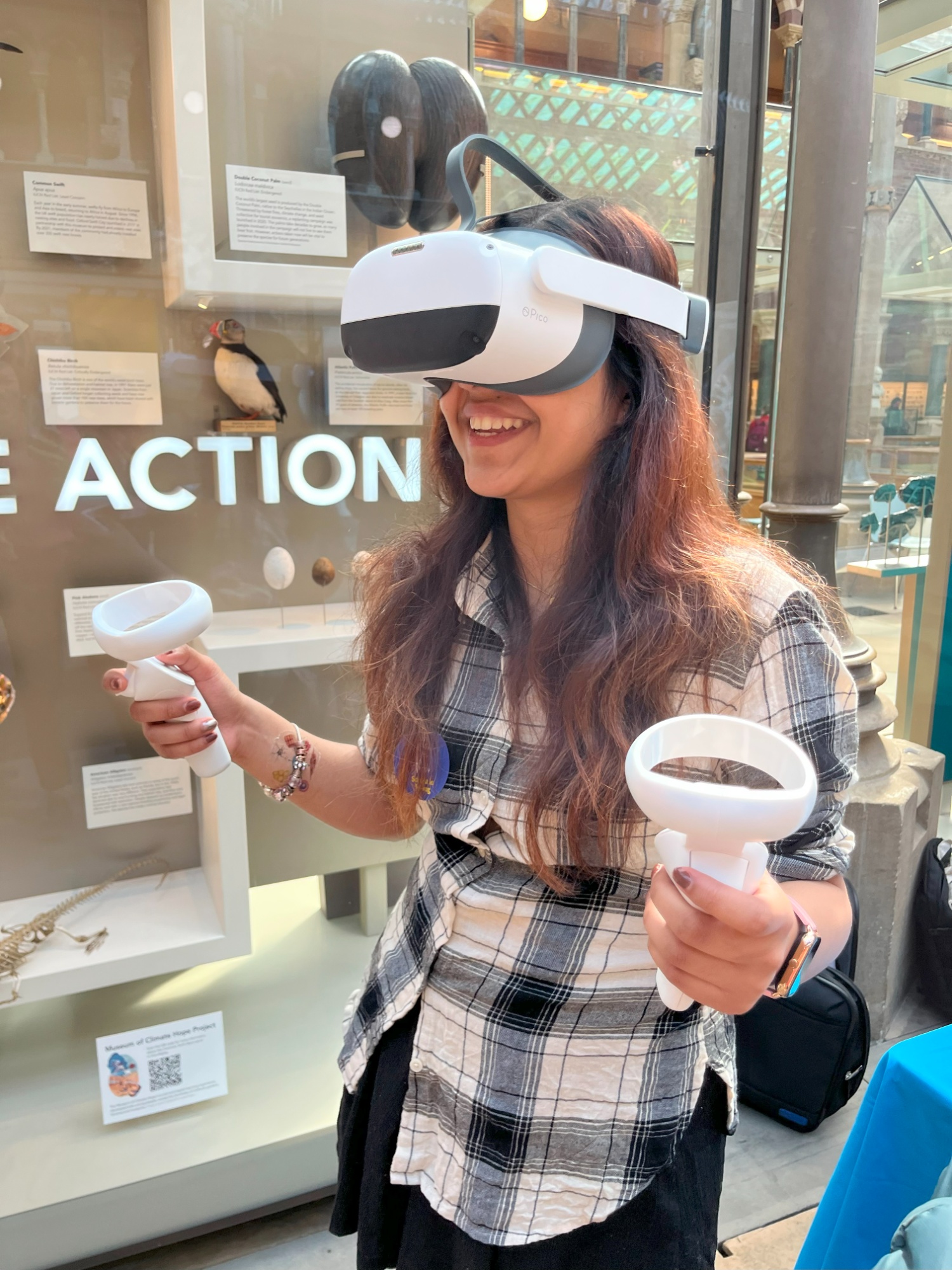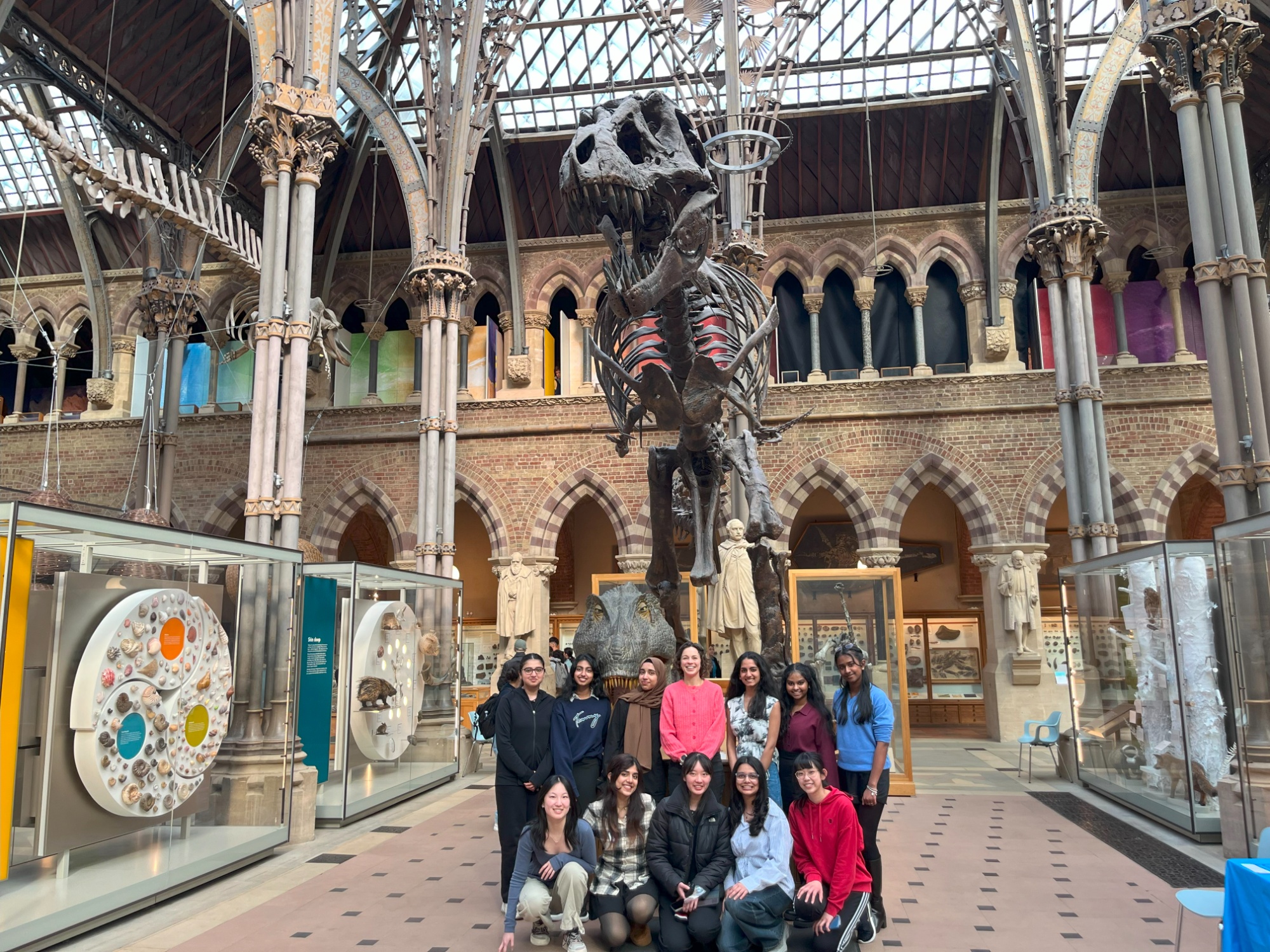A Gene Therapy Treat for our Science in Medicine Finalists!
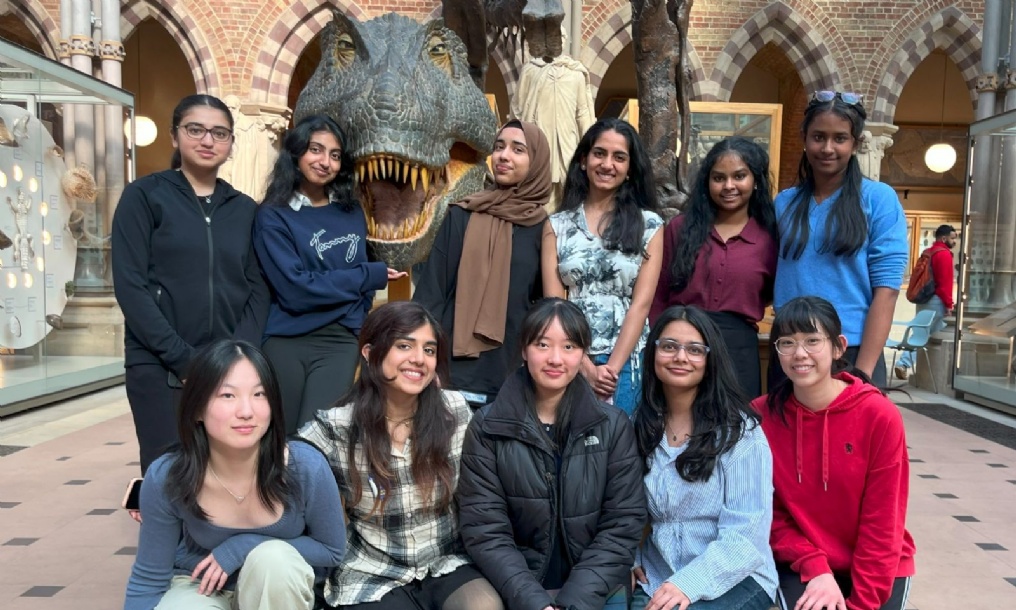
Our Year 13 biologists embarked on an inspiring journey to the prestigious Oxford University Museum of Natural History on Wednesday, March 26th. There, a select group of 13 students immersed themselves in the cutting-edge world of gene and cell therapy at a special day hosted by The British Society for Gene and Cell Therapy. The event ignited their curiosity through five captivating lectures delivered by leading experts, prompting deep thought about the ethical dimensions and societal impact of this groundbreaking science.
Beyond the talks, the students had the invaluable opportunity to connect with real scientists, dive into hands-on activities like micropipetting and building edible DNA models, and even explore a virtual reality laboratory during a stimulating lunch break.
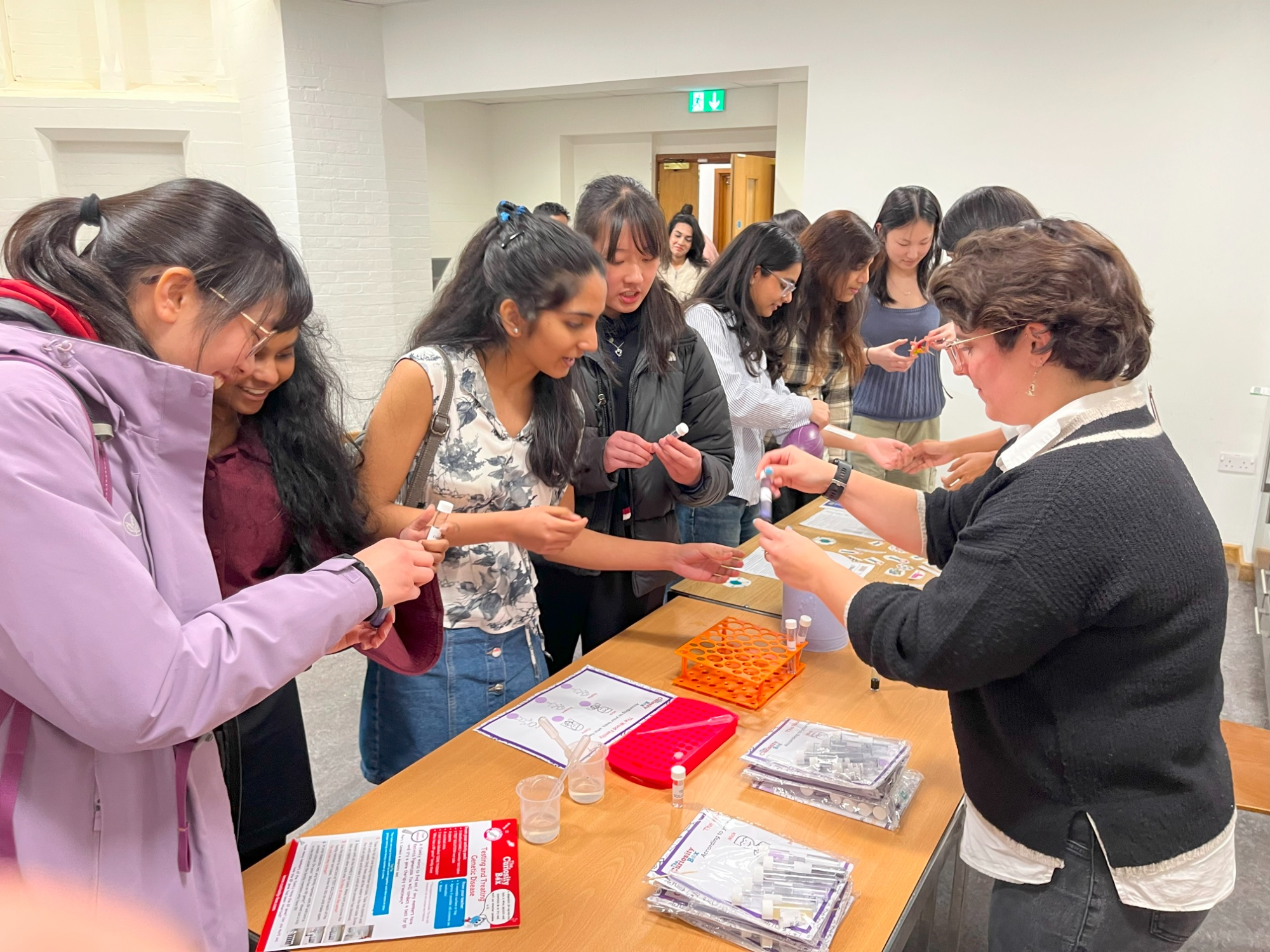
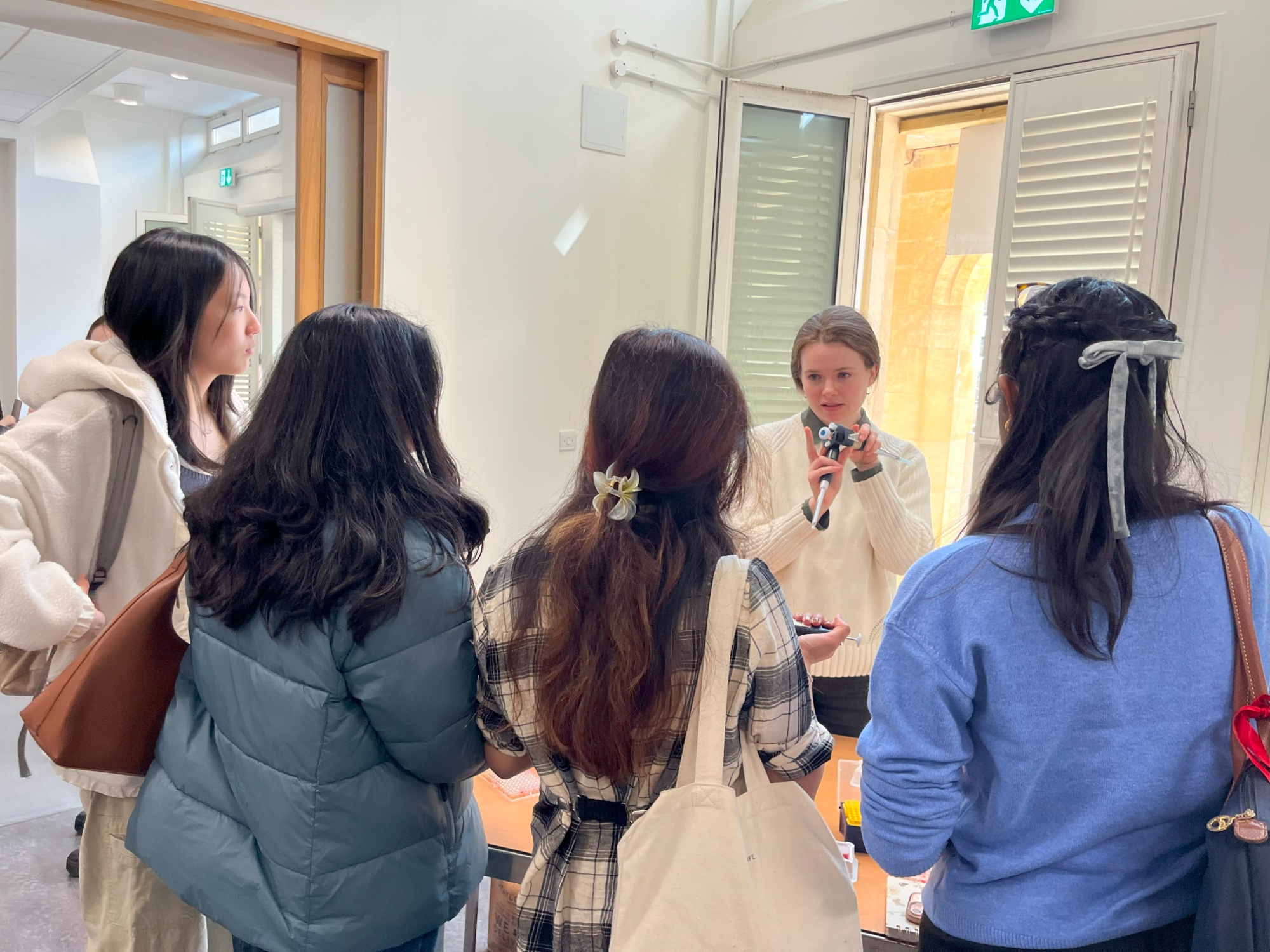
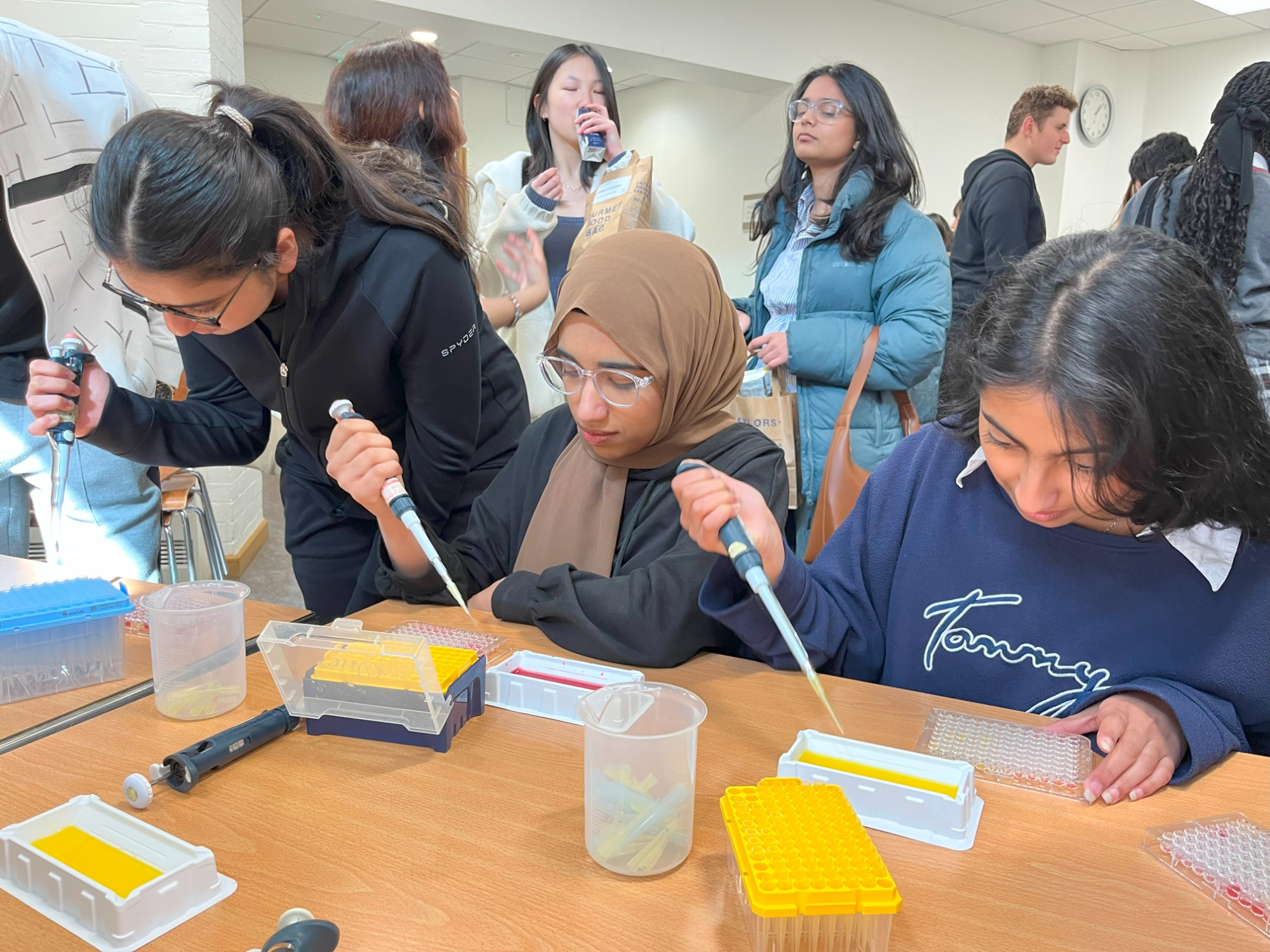
Following this insightful day, several of our students were inspired to write about the key speakers and their presentations.
Gene Therapy for Rare Lung Diseases (Key Speaker: Kamran Miah, University of Oxford)
We attended a truly fascinating talk on cystic fibrosis at the Oxford Natural History Museum and thoroughly enjoyed the entire experience. The speaker gave a clear and engaging explanation of what cystic fibrosis is and how many people it affects across the UK. What really captured our interest was the discussion on the development of a new gene therapy drug. It was impressive to hear how they explored different viral vectors, eventually choosing lentivirus for its long-lasting gene expression, despite it not naturally infecting lung cells. To solve this, they replaced its spike proteins with those from the Sendai virus, which targets the lungs—an incredibly clever workaround. The talk was not only informative but inspiring, and it gave us a real appreciation for the innovative work being done in genetic medicine today.
Written by Bramhi and Joelle
Advancing Immunodeficiency Treatment with Gene Therapy (key speaker: Adriana Albuquerque, UCL Institute of Immunity and Transplantation)
Primary immunodeficiencies (PIDs) are genetic disorders that weaken the immune system, making individuals highly susceptible to infections and autoimmune diseases. With over 400 identified types, conditions like severe combined immunodeficiency (SCID) and Wiskott-Aldrich syndrome (WAS) can be life-threatening. Traditional treatments such as bone marrow transplants and immunoglobulin replacement therapy help manage symptoms but do not always provide a lasting cure. Gene therapy, however, is revolutionising the treatment landscape.
Gene therapy corrects the faulty gene responsible for PIDs by 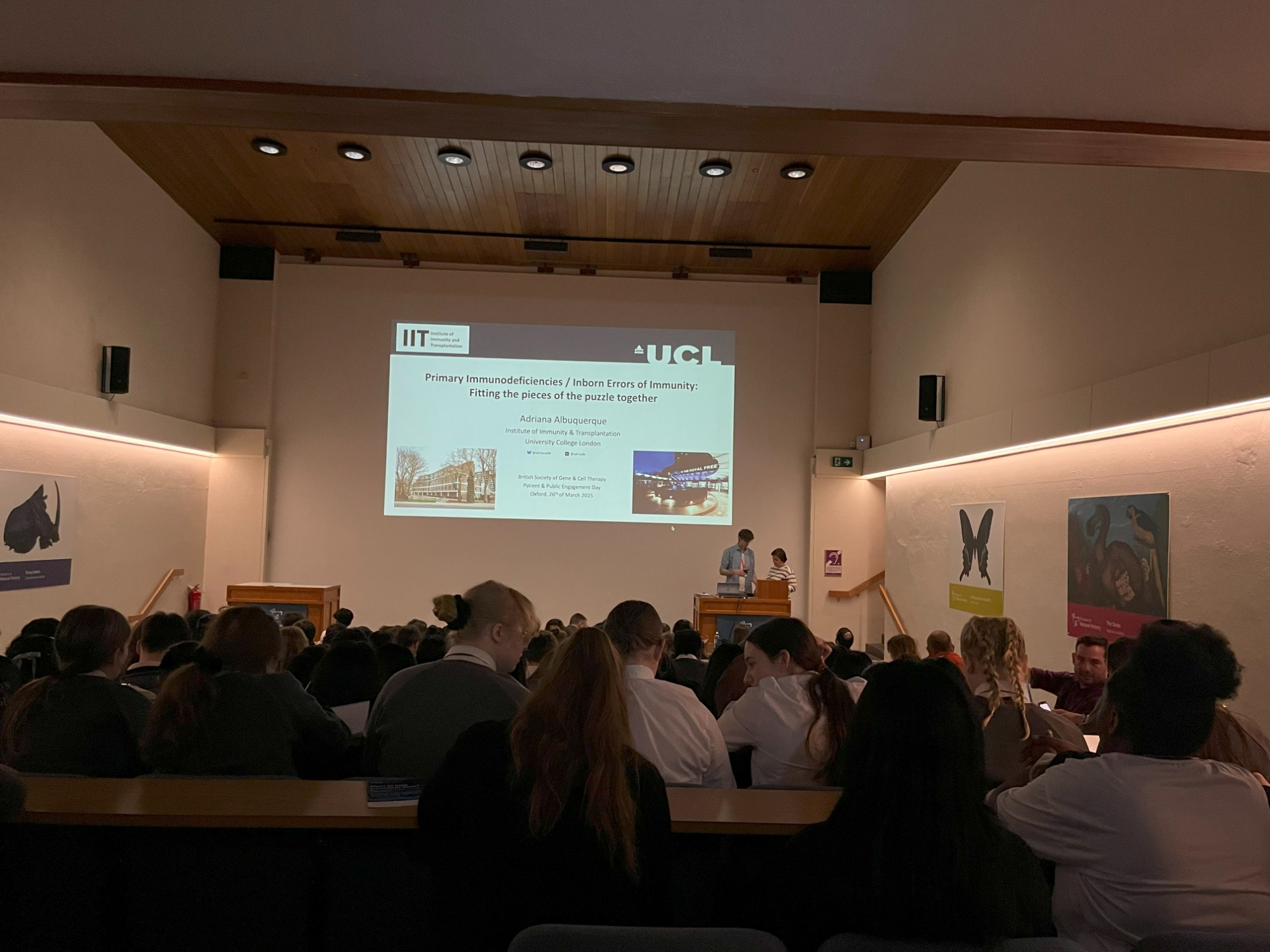 introducing a functional copy into a patient’s cells. Using modified viruses as carriers, doctors deliver the healthy gene into stem cells extracted from the patient’s bone marrow. These modified cells are then reintroduced into the body, where they generate functional immune cells, restoring immune function. Unlike bone marrow transplants, gene therapy eliminates the need for a donor, reducing complications like immune rejection.
introducing a functional copy into a patient’s cells. Using modified viruses as carriers, doctors deliver the healthy gene into stem cells extracted from the patient’s bone marrow. These modified cells are then reintroduced into the body, where they generate functional immune cells, restoring immune function. Unlike bone marrow transplants, gene therapy eliminates the need for a donor, reducing complications like immune rejection.
Real-world success stories highlight its potential. SCID-X1 patients treated with gene therapy have developed healthy immune systems, allowing them to live normal lives. Clinical trials for chronic granulomatous disease (CGD) and Wiskott-Aldrich syndrome (WAS) have shown promising results, with improved immune function and reduced infections. Though early trials had complications, advancements in vector technology and gene editing have improved safety and efficacy.
Looking ahead, CRISPR-based gene editing could make treatments even more precise, and in vivo gene therapy may eliminate the need for stem cell extraction altogether. While still costly, research is underway to make these therapies more widely accessible. With continued innovation, gene therapy holds the promise of curing PIDs, offering patients a chance at a healthier life without lifelong medical interventions.
Written by Vishnupriya and Jenny
Patient perspective - The journey of a teenager (Key speaker: Alyssa Tapley)
We had the invaluable opportunity to hear from an ex-patient who had received the first CAR T-cell therapy for her relapsed leukaemia; it was incredibly moving, as through her story we were able to look beyond the scientific analysis of gene editing and see the profound personal impact of such technology and its ability to transform lives.
Alyssa Tapley was only 12 when she was diagnosed with T-cell acute lymphoblastic leukaemia (T-cell ALL), and despite numerous rounds of chemotherapy as well as bone marrow transplants, just before her 13th birthday she found out that her cancer had recurred. Alyssa explained to us how she felt like she ‘did something wrong’ as 96% of people with her condition were cured with chemotherapy. Without the experimental CAR T-cell therapy, Alyssa’s only option would have been palliative care.
After months of searching for any possible treatment and almost losing hope, Alyssa’s parents fortunately heard from UCL’s Waseem Qasim team at Great Ormond Street Hospital, and learnt of a certain gene therapy they were testing. This treatment was able to rid her of cancer in 4 weeks and gave Alyssa her life back, becoming the first patient in the world to have been cured of an otherwise ‘incurable’ disease with this treatment.
Base-edited CAR T-cells are ‘universal’ T-cells, taken from a donor, which have had receptors and markers removed so that they can be used widely and be undetected by other cancer treatments. They then have a Chimeric Antigen Receptor (CAR) added so that they are able to find leukemic T-cells and destroy them. This differs from traditional T-cell therapy, where T-cells are collected from the patient’s blood and sometimes end up killing each other in the manufacturing process, making them unusable.
It was greatly appreciated to hear from Alyssa and learn about this treatment at the BSGCT Gene and Cell Therapy engagement day. Her hope that all cancers can be treated with gene editing left us feeling inspired and anticipating the further life-changing treatments that can arise out of this technology. Hearing that Alyssa is now preparing for her GCSEs, able to spend time with friends just like us and inspiring others with her story made us especially happy for her. Read more about Alyssa’s journey here!
Written by Sissi, Sohini and Zaynah
